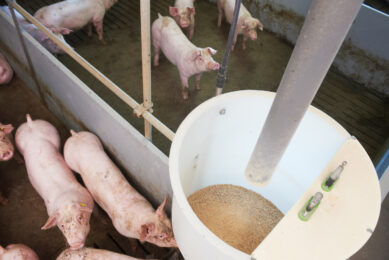Research: Effect of yeast protein on piglet intestines
Australian scientists studied the use of nucleotides, vitamins and functional amino acids to enhance the structure of the small intestine and circulating measures of immune function in the post-weaned piglet.
Ninety individually-housed castrated pigs (Large White × Landrace × Duroc mixed crossbred, n=18) were used in a randomised block experiment to determine the effect of yeast protein concentrate (YPC) or its major active components, nucleotides (NCL), inositol (INS), and glutamate (GLU), on pig performance, indices of gut structure and circulating measures of immune function.
Results
Daily gain and feed intake were not affected by diet, however pigs fed the YPC diet had a lower feed conversion ratio compared to those fed the control (CON), INS and NCL diets in the feeding period.
Villous height in the duodenum was increased in pigs that received the YPC diet compared to the CON and INS diets.
In addition, immunoglobulin G levels were increased in pigs that received the INS and GLU diets compared to the CON and NCL diet on day 21.
Conclusion
These data suggest that although the effect was limited on the duodenal villous structure, pigs fed the YPC diet showed an improved duodenal villous height and the positive effect of YPC is most likely attributable to glutamate and nucleotides in the yeast protein concentrate.











